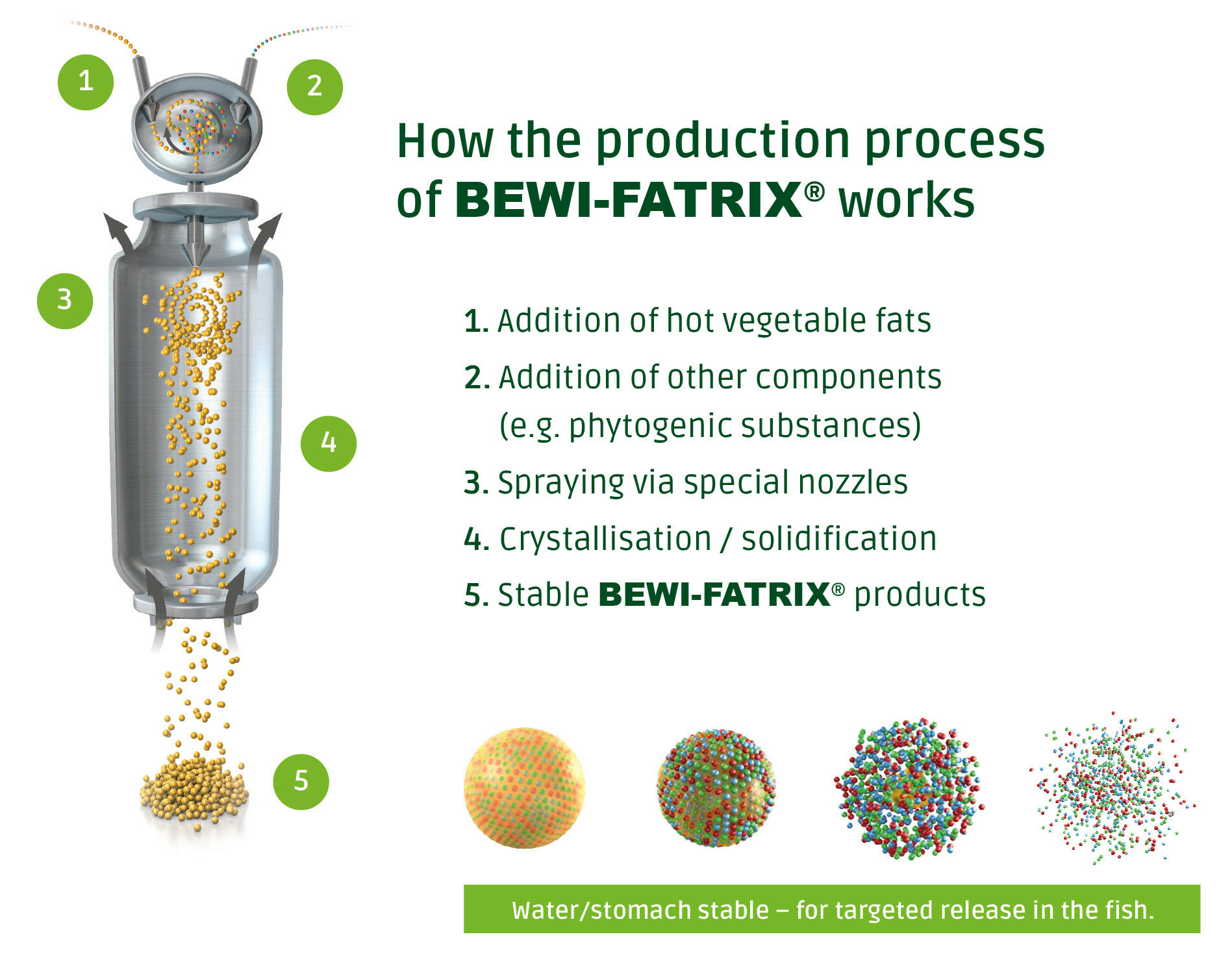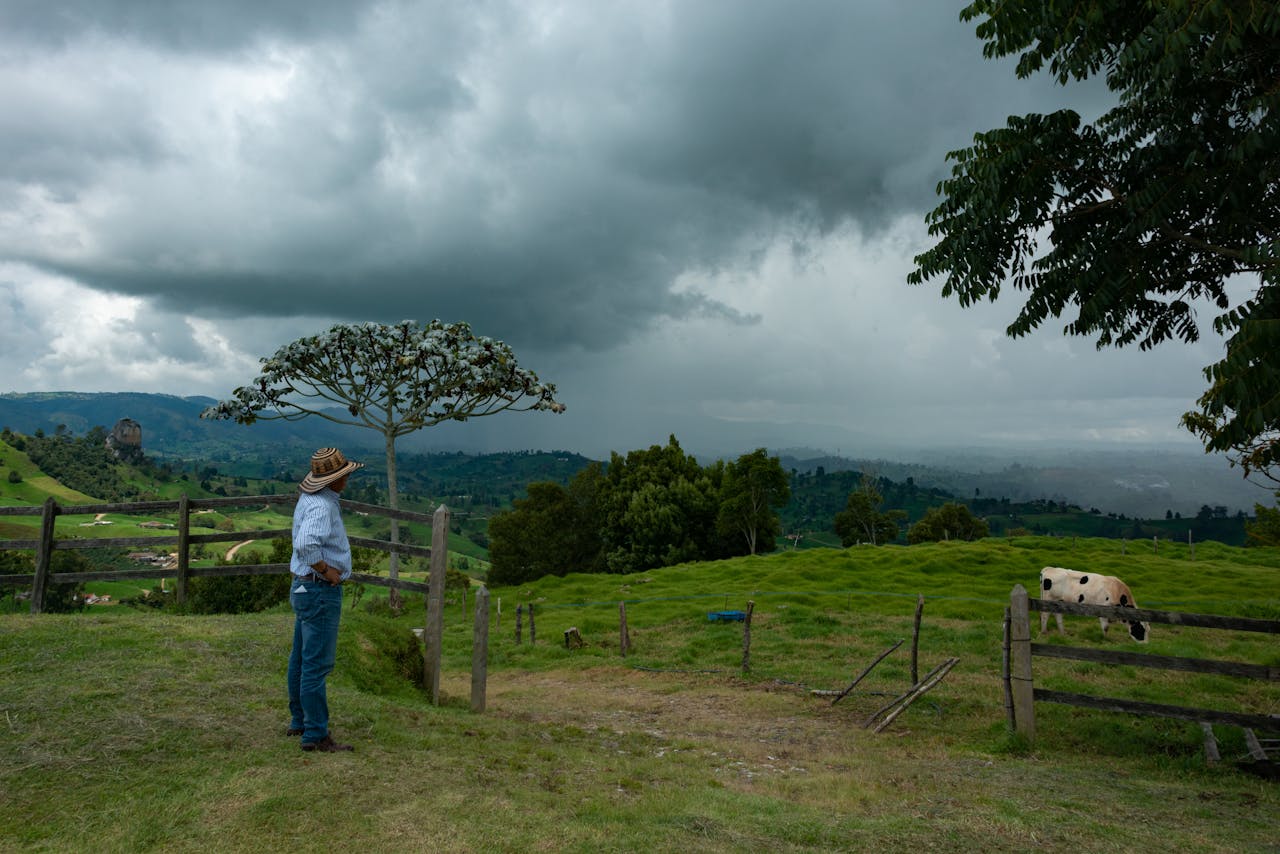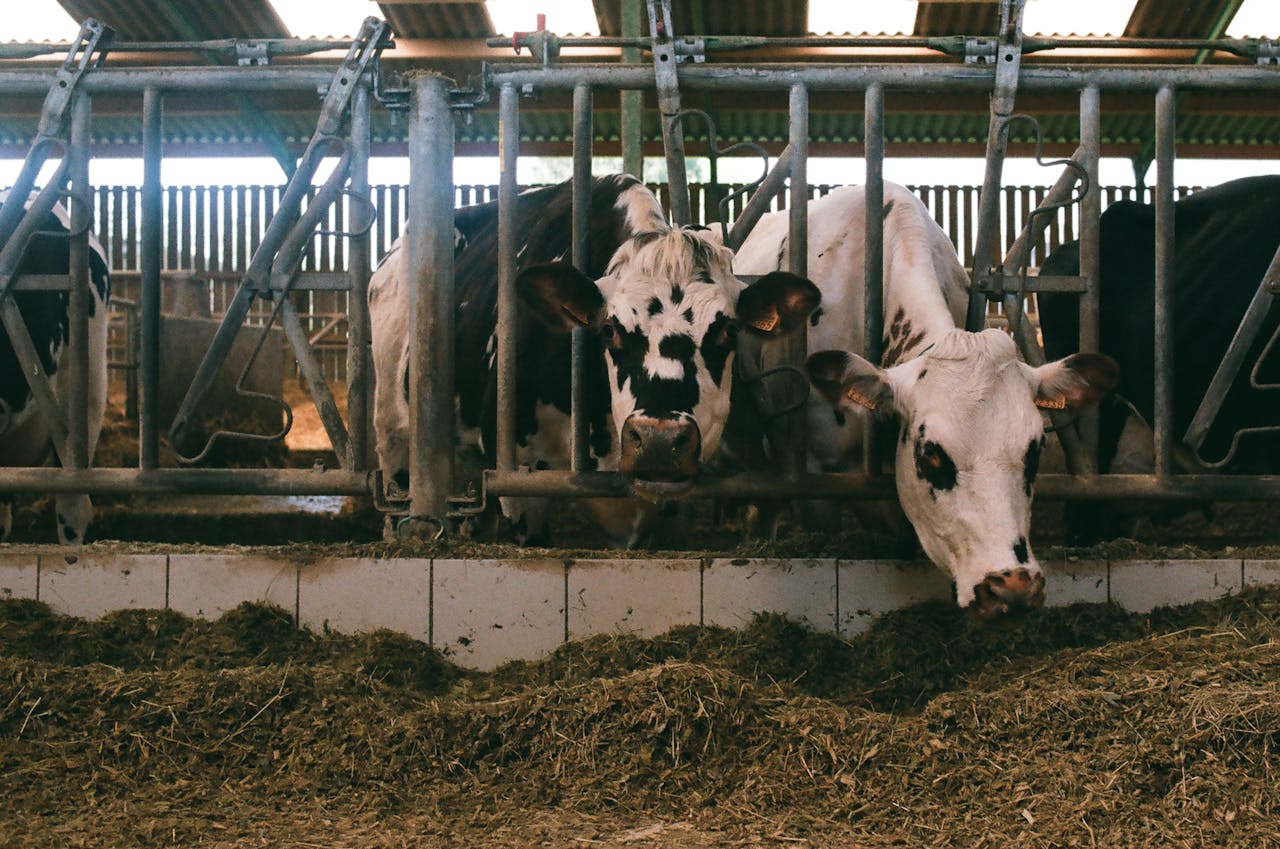Aquaculture has become the fastest-growing sector in animal production worldwide, already surpassing traditional fisheries as a major source of protein for human nutrition. This rapid growth is driven by technological innovations, increasing global demand for fish products and the need to preserve wild fish stocks. However, this expansion also brings significant challenges: improving nutrient efficiency, safeguarding fish health and reducing the ecological footprint of intensive aquaculture systems.
In this context, functional feed components are attracting increasing attention. Beyond their role as pure energy carriers, fats and plant-derived additives can support fish performance, resilience and welfare. Research highlights that fat powders, medium-chain fatty acids (MCFAs), and phytogenic additives play a pivotal role in creating more stable, efficient and sustainable feeding strategies.
Fat powders: stability and energy in 1 solution
The use of fats and oils in fish feed is indispensable due to their high caloric density. Yet, liquid fats pose technological difficulties in aquafeed production. They tend to leak out extruded pellets during storage or feeding, reducing nutrient density, impairing feed efficiency and affecting water quality.
A solution is found in fat powders, particularly products such as Bewi-Spray 99 Aqua, developed on the basis of refined and hydrogenated rapeseed oil. This product, with a crude fat content of more than 99%, functions not only as an energy source but also as a crystallisation starter. During the cooling process of extruded feed, it forms a stable crystalline network in which all fats remain bound. This network prevents leakage, even at higher temperatures, ensuring that energy and nutrients remain available to the fish.
Beyond technical stability, fat powders provide additional benefits like improved oxidative stability compared to liquid oils, enhanced flowability and dosing accuracy during processing and greater formulation flexibility, particularly in energy-dense diets.
Such innovations demonstrate how technological improvements can simultaneously serve nutritional and environmental goals by reducing nutrient losses into the water.
Medium-chain fatty acids (MCFAs): rapid energy with functional potential
Another group of functional lipids are MCFAs, naturally occurring in coconut and palm kernel oil. These fatty acids such as caprylic, capric and lauric acid provide readily available energy due to their direct absorption and rapid metabolisation.
But their benefits go far beyond energy supply. Research shows that MCFAs can support intestinal health by protecting the epithelial structure and inhibit the growth of pathogenic, pH-sensitive bacteria. Additionally, they can promote beneficial gut flora, especially in the early life stages of fish.
Studies have documented improvements in feed conversion, higher growth rates, and even reduced mortality when MCFA products are included in aquaculture diets. Combination products, such as Bewi-Fatrix SynerG+, embed lauric acid, monoglycerides, and phytogenic substances in a fat matrix. This technology ensures controlled release, synergistic effects, and high acceptance in extruded feeds.
Such innovations demonstrate that targeted MCFA supplementation can stabilise fish performance, particularly during stressful phases, while simultaneously strengthening the immune system.
Phytogenic additives: natural functional ingredients
The use of phytogenic additives has gained considerable momentum in aquaculture. Essential oils (e.g. oregano, thyme eucalyptus) as well as herbs and spices (e.g. turmeric, tea, cinnamon) show diverse physiological effects. These include antioxidant, antimicrobial, anti-inflammatory, and immunomodulatory activities.
Phytogenics also stimulate feed intake, particularly valuable during the sensitive juvenile phase. They stabilise the intestinal flora and improve barrier function, thereby contributing to long-term intestinal integrity.
One key challenge remains the variability of active ingredients depending on plant origin, extraction method, and storage. To ensure consistency, Bewital agri collaborates with MartinBauer, a global leader in botanical actives guaranteeing standardized high-quality phytogenic components for animal nutrition.
Synergies between lipids and phytogenics
The most promising strategy for the future lies not in isolated components, but in their combination. Embedding MCFAs and phytogenics in fat matrices protects sensitive substances from leaking out into water and ensures that bioactive compounds reach their desired site of action in the animal. This synergy unites energy supply with functional benefits, delivering double value for fish growth, health and resilience.
Technological processes such as spray cooling (cryotechnology) used in Bewi-Fatrix products exemplify how precise formulation can stabilise bioactive ingredients, enhance feed intake and create new opportunities for aquafeed development.
Conclusion
Functional feed components are reshaping the future of aquaculture nutrition. Fat powders stabilise energy supply and prevent nutrient leakage. MCFAs provide fast energy while supporting gut health and phytogenic additives deliver natural bioactivity that complements conventional feed ingredients.
Their combined use opens pathways for sustainable and efficient fish farming by improving feed conversion efficiency, enhancing resilience and immune response and reducing environmental impacts of intensive aquaculture.
With global demand for fish rising and sustainability becoming an imperative, functional lipid and plant-based components are essential tools. Their targeted integration into modern aqua-feed formulations represents a research-driven step towards more resilient and environmentally compatible aquaculture systems.


